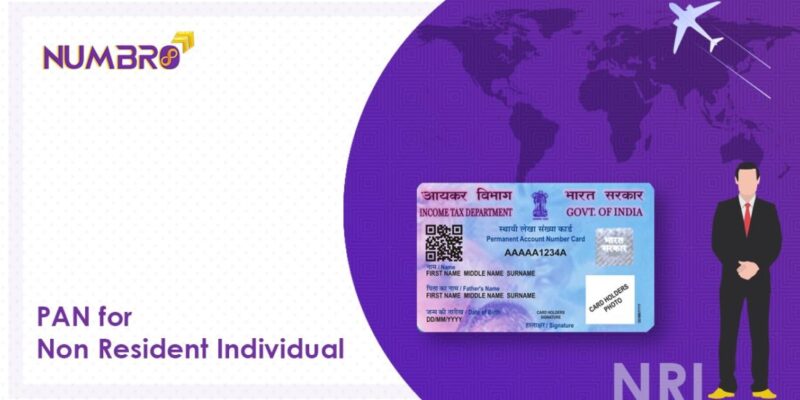Pan Card for NRI | Why Pan Card is important for NRI
PAN Card is mandatory for every person who is required to file a return of income or intends to enter into an economic or financial transaction where quoting of
Transactions in which quoting of PAN is mandatory are as follows:
- PAN Card is required by an NRI if that NRI has got a taxable income in India.
- PAN Card is necessary when an NRI wants to open an NRO or NRE account.
- If an NRI doesn’t want to trade but wants to purchase some land or other property in India, then also it is mandatory to have a PAN card issued by the Government of India.
- Sale or purchase of a vehicle other than two-wheeled vehicles.
- Payment of an amount exceeding Rs. 50,000 to a Mutual Fund for purchase of its units & to a company or an institution for acquiring debentures or bonds issued by it.
- Deposits of cash exceeding Rs. 50,000 during any one day with a banking company or a co-operative bank.
- A time deposit of amount exceeding Rs. 50,000 or aggregating to more than Rs. 5 lakh during a financial year with –
- (i) a banking company or a co-operative bank
- (ii) a Post Office;
- (iii) a Nidhi company
- (iv) a non-banking financial company as per the RBI Act.
- Payment of an amount aggregating to more than Rs. 50,000 in a fiscal year as life insurance premium to an insurer
- A contract for sale or purchase of securities (other than shares) for an amount exceeding Rs. 1 lakh per transaction
Sale or purchase, by any person, of shares of a company not listed in a recognized stock exchange for an amount exceeding Rs. 1 lakh per transaction.
Any of the following documents of proof of Identity & proof of address are required,
PROOF OF IDENTITY :
- Copy of passport, or
- Copy of Person of Indian Origin (PIO) card issued by Government of India, or
- Copy of Overseas Citizen of India (OCI) card issued by Government of India, Or
- Copy of other national or citizenship Identification Number or Taxpayer Identification Number duly attested by “Apostille” (Hague Convention 1961)
- 3 Pan for Non-Resident Individual
PROOF OF ADDRESS :
- Any of the four mentioned for proof of Identity or any of the following.
- Copy of Bank account statement in
- Copy of Non-resident External (NRE) bank account statement in India, or
- Copy of Certificate of Residence in India or Residential permit issued by the State Police Authorities, or
- Copy of Registration certificate issued by the Foreigner’s
- Registration Office showing Indian address, or
- Copy of Visa granted & Copy of appointment letter or contract from Indian Company & Certificate (in original) of Indian address issued by the employer.
Hague Convention of 1961:
All the countries which are signatories to the Hague convention of 1961 must have an Apostille attestation on all the required documents, i.e., A copy of passport along with identity proof & address proof.
The other countries which aren’t signatories to the Hague convention of 1961 are required to have attestation of State certification, US Department of State certification if needed, and Embassy or Consulate legalization on all the required documents, i.e., A copy of passport along with identity proof & address proof.
The following are the countries of non-Apostille treaty countries:




